For This Celebrity Interviewer, the Stars Have Always Been Aligned
Bill Diehl, ABC broadcaster and author of “50 Years of Celebrity Chatter,” on his conversations with a who’s who list of famous faces
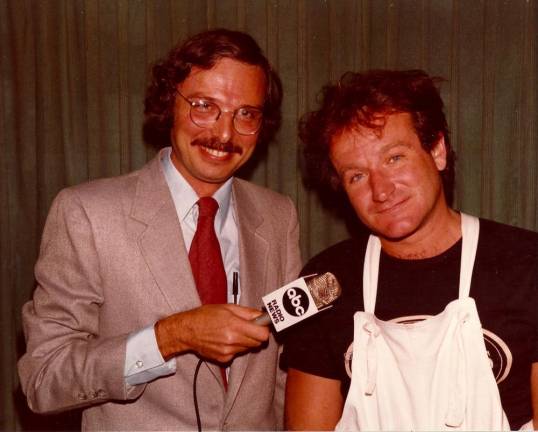
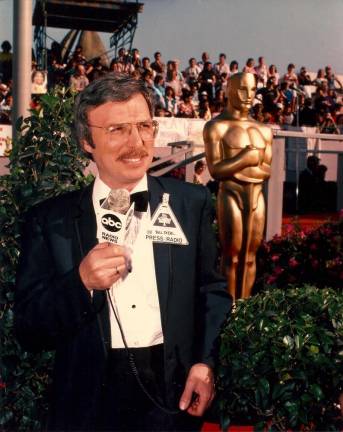
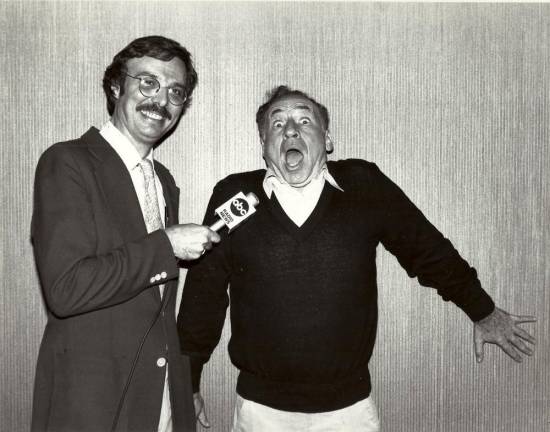
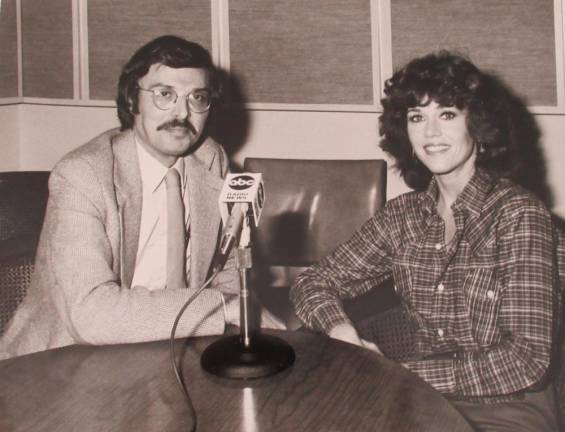
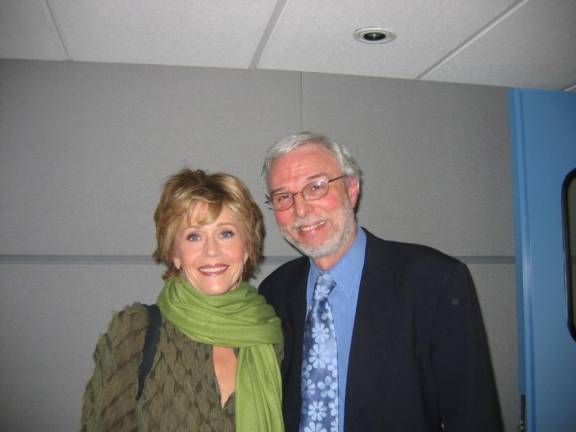
When Bill Diehl was just 10 years old, he built his first radio at his home in Corning, New York. What he could have never imagined back then was that early interest in broadcasting would lead him to New York City and a lifelong career interviewing some of the biggest names in entertainment.
In 1967, he moved to Manhattan to work as a morning newscaster at WNEW, and a few years later, landed a job at ABC Radio News. He was immediately attracted to the station’s feature programming, and pretty soon, he was sitting down with a who’s who list of famous faces from actresses like Audrey Hepburn and Jane Fonda to actors such as Harrison Ford and Sean Connery.
One of his regular assignments was covering the Academy Awards, which he did from 1982 to 2007. And in the mid ‘80s, the network gifted him “Bill Diehl’s Spotlight,” a 90-second interview show that aired every weekday on ABC for close to 10 years.
We spoke to him — very fittingly — the night after the Academy Awards this year. As to whether or not he misses being on the red carpet surrounded by A-Listers, the now-82-year-old said, “A little, but at this stage I enjoy watching the Oscars from the comfort of our living room on a big TV screen.”
Last year, he released a memoir, “50 Years of Celebrity Chatter,” which features highlights from all of his celebrity interviews, complete with photos of him and his subjects, thanks to the fact that he always brought a camera with him to work. For the project, he also unearthed his original interviews, many of which are still stored in reel-to-reel tapes in the basement of ABC.
A longtime Upper East Sider, Diehl lives with his wife Lorraine, an author specializing in New York City history. And he is still working for ABC, recording obituaries that are played on air when a famous person passes away.
One of your first big interviews was Robin Williams. Tell us about that.
He was at a comedy club on the East Side here. I think it was called Catch a Rising Star. And I went there, met his manager, and he said, “Well, he’s very busy, Bill. I don’t think we’re gonna get an interview with him, but give me your business card and we’ll see.” I slinked off to my ABC office on the West Side, at 1926 Broadway, across from Lincoln Center, that’s where our radio studio was. And all of the sudden the phone rings and he says, “Bill?” I said, “Yeah.” And he says, “Robin here. Robin Williams. You still want to do that interview? I’ll be right over.” And he was just hilarious, and he did little promos for my show.
How did it come about that you started covering the Academy Awards?
In 1982, our vice president of news said to me, “Listen, the woman who’s been doing the Academy Awards, she wants more money. And you’re on the staff already, so we’re gonna send you out to Los Angeles to cover them.” And I said to them, “Me? I’m a newsman.” And they said, “No, we’re gonna send an engineer with you and a producer. You’ll be fine.”
Tell us about some revelations you heard from celebrities over the years.
When I had Jane Fonda in my studio, as you know, she was tagged “Hanoi Jane.” ... She said, “I’ll go to my grave regretting that photo,” sitting on the antiaircraft gun in North Vietnam. But sometimes stars make a revelation in interviews that will haunt you later. Christopher Reeve acknowledged that he was worried about the dangers of riding, jumping horses. He said that and two years later, he had that awful accident which he was paralyzed. It’s things like that that just stick with you. It was great when I could get revealing answers from my interviews. Ed Asner, of course we know him from “The Mary Tyler Moore Show” and then he had his own show. He said, “I think acting for me was therapy. I wasn’t crazy about the person I was, and when I started acting, I thought I could become somebody I liked better.” [Laughs]
Let’s discuss the subtitle of your book, “Or The Time I Interviewed a Porn Star Naked.”
[Laughs] That was 1973 and Marilyn Chambers had posed as a model for the Ivory Snow box, holding a baby. Here’s this beautiful, fresh-faced young woman. Proctor and Gamble had Ivory Snow then, and then all of a sudden, they found out that she was a porn star. She had been in a movie, “Behind the Green Door” and needless to say, they were going to have to fire her right away. But my manager at the network said, “We’re sending you down to the Pussycat Cinema in Times Square to interview Marilyn Chambers.”
By then, I’d been at ABC a couple of years and was feeling pretty full of myself. I was a network correspondent; I thought this was beneath me. But they said, “This is a big story, Bill. Get down there.” I get inside the theater and she’s sitting up there on a podium and she’s stark naked. And a Reuters photographer took a picture of me ... A couple years later, I met her again when she was trying to become a serious actress. And I took another picture of her, fully clothed. But that sure has stayed with me as one of the strange interviews that I did.
Did you have any negative experiences?
Not negative, but some of the people I interviewed were surprisingly not very conducive to wanting to be interviewed, even though they were there to be interviewed. Harrison Ford gave me one or two-word answers. Joel Grey, of “Cabaret” fame, would just say, “Yes, yes, right” or “Oh yeah, that’s very true.” It’s those kinds of things that were disappointing, but most of the people were really nice; they were there to promote something.
What do you think was the key to your success?
Let me give a little shout-out to my wife. She thinks, after hearing some of the interviews, I never hit people with a lot of hard news or interviews. I always tried to make them feel comfortable. And if there was something that was controversial, I would wait until the end of the interview and then say something that might upset them, but at least they might give me a good answer. Jane Fonda, of course, was one of them when she started talking about regrets.
Not too many years ago, I interviewed Kathryn Crosby, she was Bing Crosby’s last wife. I said, “You were much younger when you married him.” She said, “There was a lot of other things that went on that I didn’t realize until I finally found out that Bing liked 19-year-old girls.” I said to her, “What? The great Bing Crosby?” She did say, “Well, we had a great marriage even so.”
How can you compare the Academy Awards now to those in the past?
I miss some of the great show hosts, Bob Hope, Billy Crystal. I just miss the excitement of having a great host and they would integrate that into some of the big movies. Lately, they have tried to spice up the Academy Awards and I just don’t like the techniques that they’re using. Last night, in the “In Memoriam,” they were remembering some of the great stars that died, and they had a whole bunch of dancers out on the stage, singing something.
Maybe it’s age and the entertainment age has changed. Young people are getting their news on their iPhones. The incident at the Oscars the ... with Will Smith angry because Chris Rock made a joke about his wife and then he went up on stage and slapped him. And that became a huge story, not the big honors, but everyone’s talking about that.